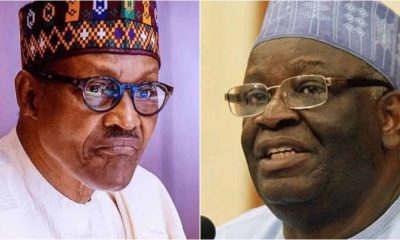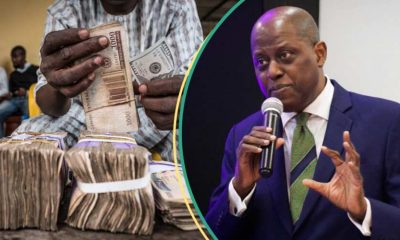Former Emir of Kano, Lamido Sanusi, says Nigerians should expect a positive outlook before the end of this year as the Central Bank of Nigeria strives to achieve stability in the foreign exchange market.
Speaking at the MTN capital markets conference, an event organised by MTN Group on Tuesday, Sanusi said the CBN is doing the right things by clearing the backlog of FX transactions.
“What we have to start talking about now is beyond the next 12 months because at the end of the day we got to look at the structural issues of NNPC not bringing in enough dollars to the CBN.
“That has to be looked at and that is coming from three sources, one is the massive oil theft that’s happening at the point of production which means the government has to look into security to make sure we do not lose the crude we are producing.
“The second is lack of investment in onshore fields, many of which are mature fields with over seven decades already. The IOCs have exited them. We need those who have taken over to invest.
READ ALSO: Don’t allow President, govs intimidate you – Sanusi warns Nigerians
”The third is what the government has started on conversion to CNG, because when you move to alternative energy, and reduce your dependence on PMS, you are able to reduce your FX expenses, spending on energy, and reduce your fossil oil emission, and that’s good for climate change.
“Given what the current CBN is doing, I think we should take from this a very positive outlook for this country from as early as to the end of this year.”
Sanusi also criticized the central bank’s excessive ways and means of lending to the federal government under the administration of ex-President Muhammadu Buhari.
He said the CBN loan to the federal government triggered inflationary pressure in Nigeria and weakened the value of the Naira.
Ways and means is a loan facility through which the CBN finances the government’s budget shortfalls.
The facility allows the government to borrow from the apex bank if it needs short-term or emergency finance to fund important projects.
“We’ve had eight years of rapid expansion of the central bank’s balance sheet through ways and means. And that has fuelled inflation and weakened the currency. And that is the fact,” Sanusi said.
“When interest rates go up, it increases the cost of government borrowing, and when your debt services to revenue ratio is already at 100 percent it further increases the money market rate and envelopes the government balance sheet.

 Latest5 days ago
Latest5 days ago
 Trends6 days ago
Trends6 days ago
 Football1 week ago
Football1 week ago
 Football1 week ago
Football1 week ago
 Health1 week ago
Health1 week ago
 Football1 week ago
Football1 week ago
 Latest1 week ago
Latest1 week ago
 Health1 week ago
Health1 week ago













